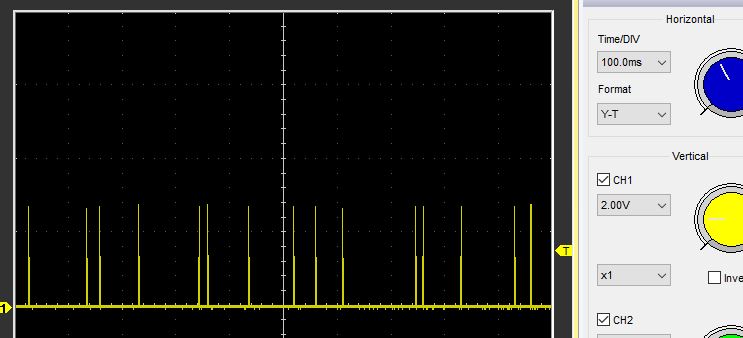When I repeatedly (>290 times) send the same notification to the connected host via sd_ble_gatts_hvx, I get a sd_assertion:
Fault identifier: 0x1
Program counter: 0x104FA
Fault information: 0x0
Fault identifier: 0x1
Program counter: 0x14D98
Fault information: 0x0
The payload is 10 bytes long, using S130 with SDK 12.1 on the PCA10028. sd_ble_tx_packet_count_get always returns 7 and the event BLE_EVT_TX_COMPLETE comes after every notification. I am trying to notify repeatedly a sensor reading to a connected host. The assertion sometimes comes after less readings or more. Can anybody give me a hint on that?
Here is the EmBlitz project: notifytest.zip
Here the Android host project: bluenodes.apk
The oscillogram showing disable_irq/enable_irq activities: 
